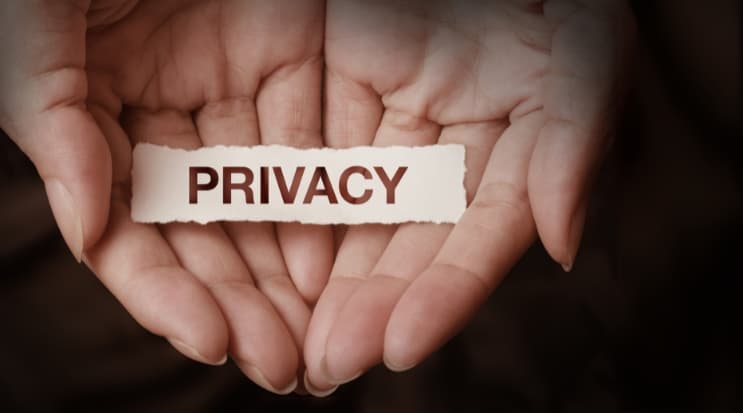
Data Protection: A Legal Guide to Privacy, Security & Oversight in the Digital Age
Explore how modern frameworks balance innovation and rights — with expert insights from legal advocates
As the digital ecosystem evolves, so does the complexity of managing and protecting personal data. In today’s interconnected world, comprehensive data protection is no longer just a technical matter—it’s a legal imperative. Governments, institutions, and companies must adopt a holistic legal approach to privacy and cybersecurity, incorporating robust legal frameworks, technical safeguards, and institutional oversight to ensure the rights of individuals are respected.
Legal Foundations of Data Protection
Modern data privacy laws revolve around principles grounded in international conventions like the EU GDPR, OECD Privacy Guidelines, and Convention 108+. These principles include:
-
Purpose Limitation – Data must be collected for lawful and stated purposes or with clear user consent.
-
Data Minimization – Only the minimum necessary personal data should be gathered to prevent overreach or function creep.
-
Lawfulness & Consent – Legal basis such as explicit consent, contractual necessity, or public interest must underpin data collection.
-
Transparency – Users should know when, why, and how their data is being processed.
-
Accuracy & Retention – Personal data should be accurate and kept only as long as necessary.
-
Security & PETs – Use of Privacy-Enhancing Technologies (PETs) like tokenization, anonymization, and encryption is critical.
-
Accountability – Independent authorities must monitor compliance with these laws.
Institutional Oversight: The Role of Legal Advocates
Effective enforcement of data protection laws depends on independent supervisory authorities—bodies that are empowered to enforce compliance, receive public complaints, and impose sanctions when violations occur.
Global examples include:
-
EU GDPR Supervisory Authorities
-
South Africa’s Information Regulator
-
The UK’s Information Commissioner’s Office (ICO)
-
The Philippines’ National Privacy Commission
These regulators often work closely with legal advocates, ombudsmen, and data protection officers to safeguard individual rights and influence legislation. Their duties span public education, cross-border cooperation, and enforcement against both private and public entities.
Data Security: Shielding Information from Breach
In an era of cyberthreats, securing personal data is essential. Legal frameworks mandate organizations to implement:
-
Encryption, anonymization, pseudonymization
-
Data integrity and system recovery protocols
-
Breach notification procedures within 72 hours (as in the GDPR)
-
Criminal penalties for unauthorized access or misuse
Countries like the US, EU, and South Africa enforce mandatory security breach notification laws, ensuring that affected individuals are informed and protected.
Data Sharing and the Legal Balance
Data sharing—especially across government databases—can offer convenience, cost savings, and better service delivery. However, without strict legal controls, it risks undermining individual privacy.
Key legal safeguards include:
-
Limiting access to data on a “need-to-know” basis
-
Obtaining warrants or judicial authorization for data access
-
Requiring clear purpose disclosure and public transparency
Laws such as India’s Aadhaar Act, the EU Police Directive, and Australia’s Privacy Act provide clear guidelines and restrictions on inter-agency and law enforcement access to ID systems.
Cross-Border Data Transfers: Ensuring Global Compliance
With data crossing borders faster than ever, legal frameworks must ensure that personal data transferred internationally remains protected. According to the GDPR and OECD frameworks, countries or entities must prove “adequate” levels of protection for such transfers to be legal.
Some permissible mechanisms include:
-
Adequacy decisions (EU to Japan, Canada, Israel, etc.)
-
Standard contractual clauses
-
Approved codes of conduct
These tools allow companies and regulators to protect individuals while enabling international cooperation and commerce.
User Consent, Control & Redress
Consent remains a cornerstone of global data protection law, but it must be informed, specific, and freely given. Legal systems increasingly recognize rights that give users greater control over their data, including:
-
Right to access and correct personal data
-
Right to erasure (e.g., “right to be forgotten”)
-
Right to data portability
-
Right to legal redress through courts or data authorities
Countries such as the EU, Australia, and California (via CCPA) have adopted varying models to ensure that users are empowered to manage how their data is collected, stored, and used.
Legal Advocates and the Future of Data Protection
The work of legal advocates—from government regulators to privacy lawyers—is fundamental in ensuring that digital innovation does not come at the cost of individual freedom and autonomy. As data privacy laws continue to evolve, professionals in the legal domain are stepping in to advise governments, shape legislation, and represent individuals and corporations in privacy disputes.
For any enquiries or information, contact info@thelawreporters.com or call us on +971 52 644 3004. Follow The Law Reporters on WhatsApp Channels